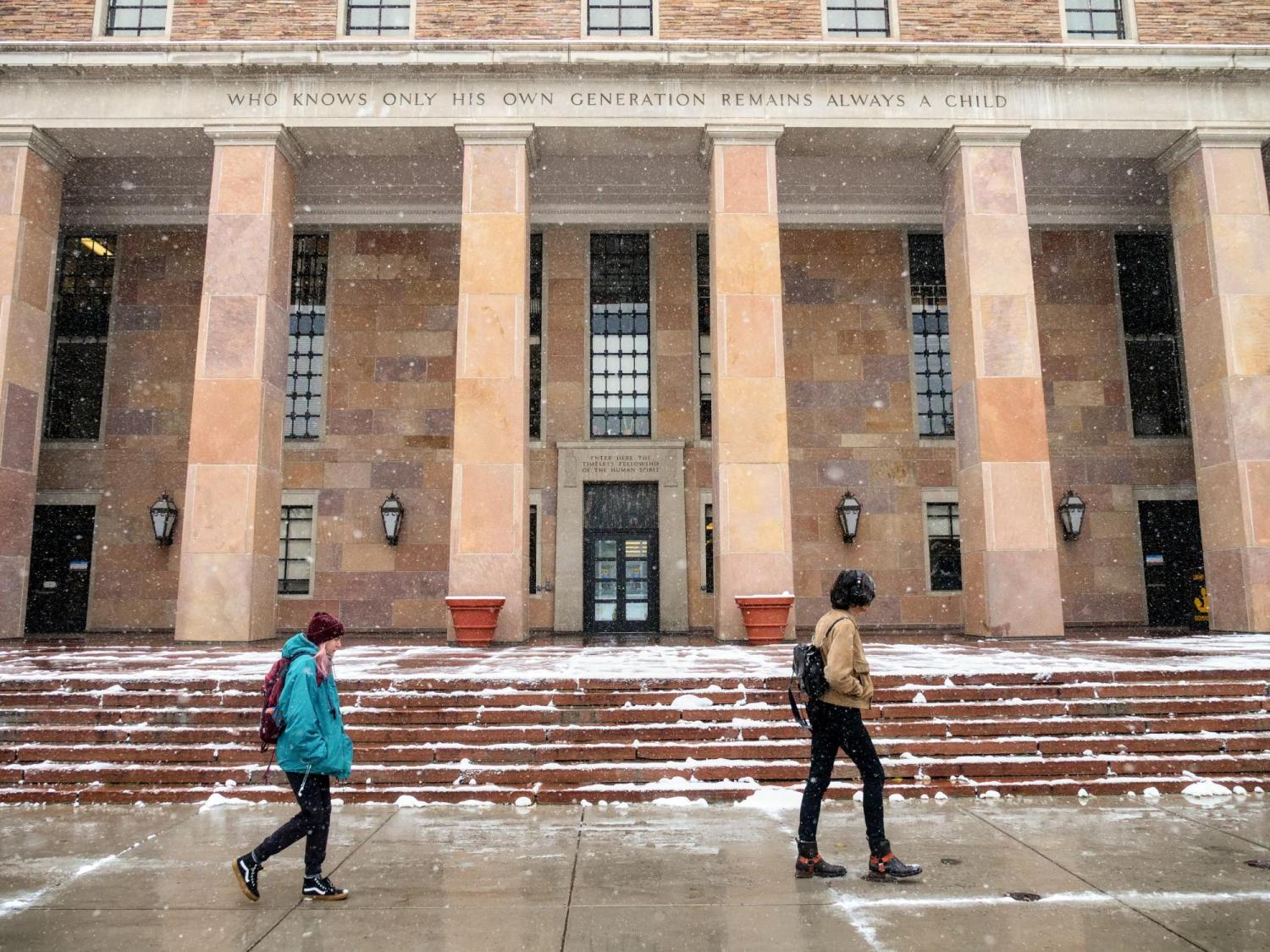Your student government
CU Boulder undergraduate students are represented by the University of Colorado Student Government, or CUSG for short.
CUSG is the official governing body of the nearly 34,000 students at CU Boulder. As the most autonomous student government in the nation, CUSG is responsible for allocating $26 million in student fees to improve the lives of all CU students.
From funding student organizations and centers, such as the University Memorial Center (UMC) and the Rec Center, passing legislation to better the lives of students, to representing the student voice on joint boards and overseeing facilities, CUSG seeks to make a meaningful impact on the lives of CU Boulder students.
The primary objective of CUSG is to serve students wherever possible. CUSG is made up of three branches: the executive branch, the legislative branch and the judicial branch.
Check out their website and follow them on social media @cusgboulder.
The executive branch
The executive branch consists of the student-body presidents, referred to as tri-executives, their 26 executive cabinet members, and 8 new student interns. Tri-executives are elected each spring, and they serve as the head of the executive branch for the entirety of the following school year. Executive cabinet positions are hired over the summer, and interns are hired at the start of the school year.
Main responsibilities:
- Organize major campus events such as homecoming
- Work to maintain open lines of communication with students and administration
- Advocate on behalf of the student body to create a more inclusive campus that seeks to represent all students
The student body will elect five new representatives-at-large, who sit on the CUSG Legislative Council for one year. Voting is open through Oct. 31. Students will be able to access the voting platform through MyCUInfo.
CUSG is always looking for new students to join. Get information about open positions.
The legislative branch
The legislative branch, or Legislative Council, consists of Representative Council and the Council of Colleges and Schools. Nine representatives-at-large sit on Representative Council, with five being elected during the fall elections and four being elected during the spring elections. The Council of Colleges and Schools consists of 18 school senators who are appointed or elected by their individual colleges; each CU Boulder local school is represented by two school senators.
Main duties:
- Ensures the student voice is heard in all major campus programs by sitting on joint boards
- Enacts legislation to help better the lives of the student population
- Passes the student fee package each fiscal year
The judicial branch
The judicial branch consists of seven justices, who serve lifetime appointments (as enrolled CU students) and are appointed by the executive branch and ratified by Legislative Council. The judicial branch oversees legitimacy and transparency, in addition to questions of constitutionality in cases brought by students and other representatives at the university, or that arise in all of the cost centers that CUSG oversees.
Main duties:
- Hears cases and rules on decisions that concern breaches of justice
- In charge of providing guidance and advice to both branches of governments regarding the constitutionality behind legislation and other efforts
The judicial branch is currently looking for four justices to take on this important role of ensuring justice and transparency in student government and across our CU campus.


